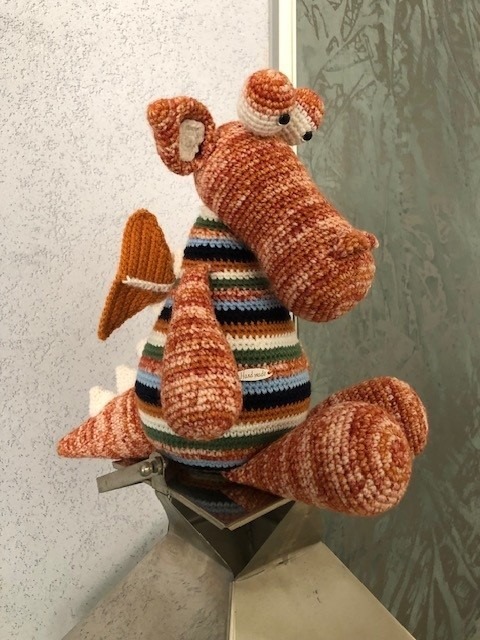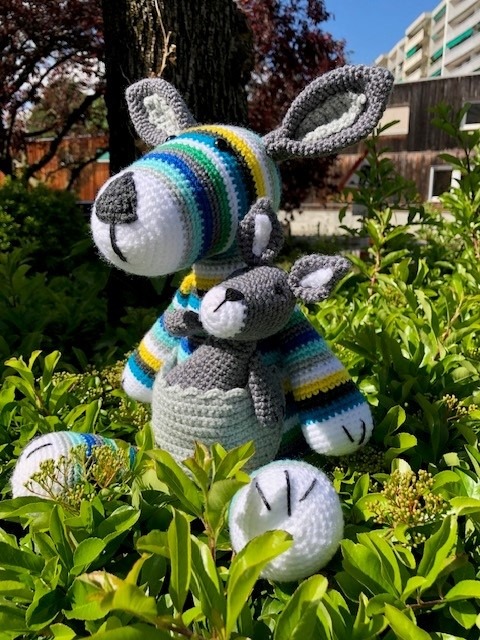

Why take up a hobby during a period of unemployment?
Well, this time can be tough, especially when a job isn't found quickly. Stress, uncertainty, and anxiety can quickly become overwhelming, turning each day into a test of patience and resilience. However, one often overlooked resource during these times is the hobby, an activity that can provide a breath of fresh air and valuable well-being.
When unemployed, thoughts constantly revolve around job hunting, potential failures, financial worries, and personal doubts. These concerns can take over the mind, creating feelings of anxiety and stress. However, by dedicating time to a hobby—whether creative, athletic, or intellectual—you can give yourself a real mental break.
Spending a few hours focusing on something you're passionate about helps break the cycle of negative thinking. Whether it's painting, reading, gardening, crocheting, music, or even cooking, these moments allow you to reconnect with yourself and disconnect from the anxiety of job searching.
One of the biggest challenges during unemployment is the lack of routine. Without a job, the day can quickly feel empty and disorganized. Having a hobby helps create a schedule, even if it's light, and brings structure to the day. It provides a purpose, and daily motivation, even if it seems small. For example, taking time each day to work on a creative or athletic project gives a sense of progress and satisfaction, far removed from the stress of job hunting.
Additionally, dedicating yourself to an activity you enjoy helps you feel useful and productive, which can counteract the feelings of worthlessness that sometimes accompany uncertain periods. Every small progress in your hobby is a victory over anxiety and a reminder that you're capable of accomplishing things, even the simplest ones.
Certain hobbies, like crafting, writing, or music, stimulate creativity. These activities offer a platform for personal expression, which, even without a specific goal, can become a powerful tool to boost self-confidence. Creating something with your hands or expressing yourself through creation reminds you that you have talents and skills, which can lead to a renewed sense of confidence—essential during challenging times.
It’s also possible that one of these hobbies could transform into a professional opportunity. For example, a passion for crochet or sewing might develop into a small craft business that you decide to grow or even sell online. While this is not guaranteed, such an endeavor can provide both psychological relief and a source of income during the transition period.
 Connecting with Others Through Hobbies
Connecting with Others Through HobbiesMany hobbies allow you to build social connections, whether online or in person. Participating in discussion forums, joining local groups, or even taking online classes related to your hobby can provide a sense of belonging and support. Job hunting can sometimes feel isolating, but hobby-related communities are spaces where you can share experiences, exchange advice, and feel supported.
This reduces the feeling of isolation that can accompany unemployment and offers a network of solidarity, especially if the interactions are enriching and supportive.
During a period of unemployment, it's easy to feel overwhelmed by stress and uncertainty. However, a hobby is not just a pastime; it can become a powerful tool for maintaining mental and emotional well-being. By providing moments of escape, productivity, and creativity, a hobby helps counterbalance the pressures of job hunting. It reminds us that even without work, there are many ways to feel fulfilled, useful, and connected. A hobby is more than just a distraction; it is a true ally in managing stress and anxiety, helping us navigate these uncertain times with greater serenity.
To discover more of Alexandra's creations, visit: @du_arte.ge
By the same author: L'importance d'un hobby en période de chômage : Une échappatoire face au stress et à l'angoisse
Image : Alexandra Duarte
Après une expérience dans le domaine de la restauration, j'ai effectué une reconversion professionnelle comme assistante administrative Mon sens de l'organisation, mon goût pour la planification et l'ordre, ainsi que ma capacité à gérer les priorités sont des atouts que j'applique au quotidien dans mon travail. Je suis une personne curieuse et toujours en quête de nouvelles connaissances, que ce soit sur le plan professionnel ou personnel. Cette soif d'apprendre m'a conduite à explorer différentes facettes de l’administration, comme par exemple la gestion des dossiers ou encore la gestion du temps et des calendriers, et à renforcer mes compétences dans ce domaine.